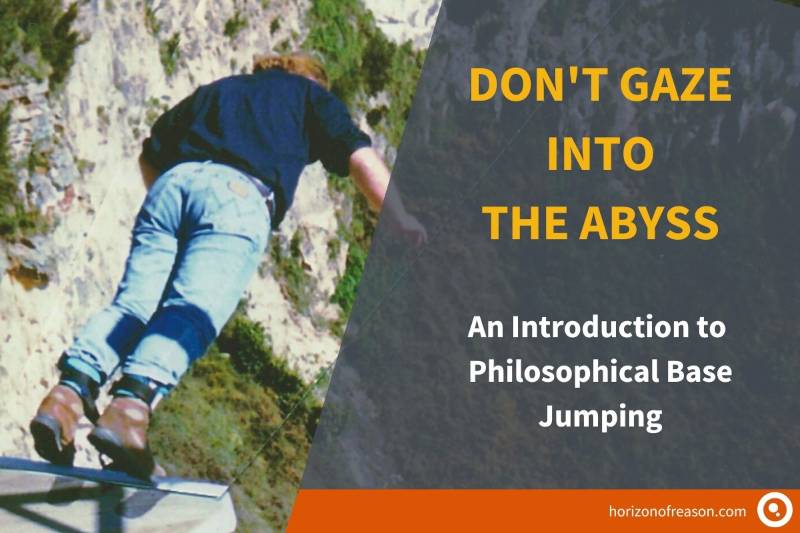
Friendship and Impartialist Ethics Friendship and Moral Intuition

Peter Prevos |
2866 words | 14 minutes
Share this content
Friendship and love are considered by most people as necessary aspects of a good life and this idea transcends different cultures and times. They are considered by many psychologists to be genetic dispositions, hard-wired into our very essence and a necessary component for every human being to be able to to lead a good life. According to the kin selection theory, animals help close relatives more often than they help non-relatives. In human society this is referred to as nepotism and cross-cultural research shows that this behaviour is common everywhere.1
The subject of friendship and love has been much discussed in ancient philosophy but has been somewhat ignored in modern ethical theories. Michael Stocker argues that modern ethical theories can not account for the importance most of us attach to love and friendship.2 Stocker directs his criticism in particular at Kantian deontology and consequentialist theories, such as act-utilitarianism and rule-utilitarianism. In this paper, I will discuss consequentialist moral theories—focusing on utilitarianism—and argue that, following Michael Stocker, the different flavours utilitarianism can not adequately account for the intrinsic goods of love and friendship. This does, however, not show that these theories are therefore inadequate as moral theories, but rather that it limits the claim which morality has on us, leading towards an intuitionist moral philosophy.
Schizophrenia of Modern Ethics
Stocker argues that the utilitarian is incapable of genuine friendship and love and that inasmuch as these are integral aspects of our lives this will lead to a kind of psychological disharmony that is, at the very least, unwelcome. Stocker gives two reasons for this problem:
- Partiality towards others, such as friendships and loving relationships, are for many people the most valuable aspects of life. Impartiality is, however, seen as one of the most important features of an ethical theory as moral philosophy requires us to go “beyond I and you”.3 Utilitarianism, therefore, demands that we act impartially in promoting the good, which seems to leave no place for love and friendship.
- Love and friendship require that we sometimes favour certain persons above others (partiality) and thus produce less good for other affected parties, as when we would be acting impartially. Utilitarianism stipulates, however, that we must guide our lives by a standard which insists that we maximise the good for all parties affected by our actions.
An everyday example of the conflict between consequentialism and the virtues of love and friendship is buying Christmas presents for our friends and loved ones. We spend money for the sake of the person we buy the present for—the friend or loved one is the final goal of our action. A consequentialist philosopher would argue that buying presents for friends does not maximise the general good and that we could have better used the money spent on Christmas presents to alleviate needs of many people in need.
A more hypothetical example was proposed by the utilitarian William Godwin (1756–1838). He asks us to consider whom I should save from a burning room if I can only save one person. The choice is between Archbishop François Fénelon and a common chambermaid. Fénelon is about to compose his immortal The Adventures of Telemachus and the chambermaid turns out to be my mother. Fénelon's Telemachus (1699) is one of the most important works of political theory, influencing Montesquieu and Rousseau in its attempt to combine monarchism with republican virtues.
Godwin thinks that it is preferable that we save the Archbishop because by saving him we would be “promoting the benefit of thousands”. The life of Fénelon is therefore preferable to that of the chambermaid. Even if the chambermaid had turned out to be his wife or mother, it would not have changed Godwin's conclusion about who's life he would save.4
Stocker is concerned with what sort of motives we can have to obtain the great goods of love, friendship, affection, fellow feeling and community. He argues that if we follow modern ethical theories, such as utilitarianism, as our motive, we can not have any true intimate relationships. To obtain intimacy and friendship and maintain a utilitarian ethic, requires a schizophrenia between reason (utilitarianism) and our motives (obtaining love and friendship). Stocker uses the term schizophrenia in its literal meaning of a split mind and has no relationship with the mental disorder.
Direct Utilitarianism
One of Stocker's claims is that acting out of a desire to maximise utility, necessarily precludes one's act being one of love or friendship. Utilitarians could deny Stocker's claims and argue that they do indeed act out of friendship. They could refer to all the time spent with their friends and the time and money they spend to making their friends happy.5 The utilitarian is committed to maximising utility and could argue that spending quality time with their friends increases overall utility more than would be the case if they spend their time working for a charity.
The utilitarian's reply is not very strong, even assuming that their calculus is correct. Their reason for acting is not out of friendship, but for the sake of friendship. Stocker argues in an earlier paper that any teleology (such as utilitarianism) is by definition unable to accommodate acting out of friendship.6 Utilitarians act for the sake of friendship and their main motive is to get, sustain or strengthen the friendship, rather then to act for the sake of the friend. To act out of friendship is not reducible to acting for the sake of a friend.
Utilitarians value friendship only as an instrument, not as a constituent, of a good life. The utilitarian does not seem to value the beloved intrinsically but only theoretical concepts such as happiness or preference satisfaction; the utilitarian universe is basically devoid of people. Direct utilitarianism is thus not able to accommodate the goods of love and friendship.
Indirect Utilitarianism
The central premise in Stocker's argument is that it is a requirement of an acceptable ethical theory that we can embody its reasons for actions as our motives. Stocker's argument is internalist as he believes that there needs to be a connection between our disposition to value certain people over others and our moral judgements. Peter Railton argues that moving from direct to indirect consequentialism enables the theory to overcome the problem of embodying our reasons and motives.7 Railton uses the relationships that John and Juan have with their wives Anne and Linda as illustrations of the connection between reason and motive in direct and indirect consequentialism.
John, who is a direct consequentialist, appears to be a model husband. He devotes himself to Anne because of the characteristically good consequences of his devotion, but does not consider his wife as such. Railton argues, in line with Stocker, that there is an estrangement between John's affections and his rational self. One could even argue that John does not really love Anne, as she is only instrumental to John's happiness.
A standard response to the criticism that direct consequentialism is alienating us from ourselves and from our friends and loved ones is a move to indirect consequentialism. The indirect consequentialist regulates activities without directly supplying purpose. A direct consequentialist like John, sees maximisation of utility as the only purpose or motive in every action. Juan is an indirect consequentialist and Railton argues that Juan's relationship with his wife is better than John's, because what Juan recognises to be morally required is not by its nature incompatible with acting directly for the sake of another. Juan's love is not a romantic submersion into the other to the exclusion of worldly responsibilities nor is he a moral saint, seeking to maximise utility in every action. As a ‘sophisticated consequentialist', Juan's motivational structure should meet a counterfactual condition:
While Juan ordinarily does not do what he does for the sake of doing what's right, he would nevertheless alter his dispositions and the course of his life if he thought they did not promote the good.
Railton acknowledges that Juan's relationship does involve a degree of alienation from Linda, but this does not seem to drain the human value out of it. Following this condition, however, Juan seems to be prepared to leave his wife, if maximising the good requires him to do so. Railton would reply that the counterfactual condition (Juan's disposition, e.g. his love for Linda, does not promote the good) will not be realised and he will thus not feel compelled to leave his wife. A fulfilling relationship like Juan's and Linda's is, according to Railton, of such value that the good will be maximised by the participants remaining involved, rather than abandoning each other. Railton's claim that people who have fulfilling relationships are actually bringing about as much agent-neutral good as possible by remaining in those relationships does not seem plausible, as meeting the counterfactual condition is not as unlikely as Railton believes. We could, for example, imagine Juan becoming engaged with the problems of the tidal wave victims in Sri Lanka because he believes that this would increase overall happiness more than remaining in Australia. The counterfactual condition is thus realised and Juan would feel compelled to leave Linda if she does not agree to live with him in a poor country.
Dean Cocking and Justin Oakley argue that the relationship which an indirect consequentialist, like Juan, has with his partner can not be love or friendship, because of the conditions under which Juan is prepared to engage in and terminate the relationship with Linda.8
There are many types of relationships where we favour others with our time and attention and where we act for their sake, but which do not necessarily qualify as intimate relationships. An example of such a relationship is between a doctor and his or her patient. The difference between friendships and other relationships, like the doctor and the patient, is that the latter is conditional upon the patient requiring care. Cocking and Oakley refer to this as the governing conditions.
Juan's governing condition for his relationship with Linda, like John's relationship with Anne, is the maximisation of agent-neutral value. Both John and Juan are justified and guided by the same consequentialist ideal of maximising agent-neutral good and are prepared to terminate their relationship with Anne and Linda under the same conditions.
Cocking and Oakley seem right in claiming that the kind of relationship which an indirect consequentialist like Juan has with Linda can not be true love or friendship as these types of relationships are only conditional upon the disposition of both involved to acts for the sake of the other. Consequentialism, direct or indirect, is not able to consistently meet this condition and as such recognise the value of friendship. But are love and friendship really necessary—should we not lead the life of a moral saint, maximising the good of the whole of humanity at all cost?
Moral Saints
Stocker's claim that friendship serves as a litmus test for an acceptable moral theory is debatable as he only assumes that friendship and friendly acts can be as such good. Although common-sense morality and psychological research suggest that love and friendship are good, it is often claimed that the goal of moral philosophy is to correct and improve upon common-sense morality and to control our natural impulses. Perhaps moral philosophy only seems unattractive because it highlights our own vices, weaknesses and flaws.9
Mahatma Gandhi believed that love and friendship are such weaknesses and that “for the seeker after goodness there must be no close friendships and no exclusive loves whatever”.10 Close friendships, Gandhi continues, are dangerous because through loyalty to a friend one can be led into acting contrary to moral requirements. George Orwell agrees with Gandhi that there is a moral risk when we maintain friendships instead of loving “God, duty and humanity”. For Orwell, however, a life dominated by moral concerns is deficient in value and the essence of being human is that one does not seek moral perfection and that one is sometimes willing to go beyond the requirements of morality. Stocker seems to agree with Orwell as he writes that it is possible only for moral saints to live a good life without society and social life.
Susan Wolf investigated the relationship between moral sainthood and our non-moral pursuits, such as love and friendship. She insists that the ideal of moral sainthood should not be used as a yardstick to judge our lives and argues that it should not be pursued because a moral saint lacks non-moral virtues (such as being able to maintain intimate relationships), non-moral interests and personal characteristics. Non-moral virtues, interests and personal characteristics contribute to being a complete human being and so being a moral saint can not be considered desirable. The reason a moral saint lacks non-moral virtues is, according to Wolf, twofold. First of all, moral saints will not have any time to develop non-moral virtues because they are committed to maximising the good of the greatest number of people. Secondly, non-moral virtues can contradict with morality—maintaining intimate relationships contradicts with the dictum that morality should be impartial.
Ethics of Friendship
It seems that Michael Stocker is right in concluding that modern ethical theories, such as the two flavours of utilitarianism, are not able to account for the goods of love and friendship. However, a weakness in his argument is that he does not demonstrate that we should actually pursue these goods. Following this, Susan Wolf has shown that to lead a complete life, we need to allow for non-moral virtues, such as love and friendship.
Partiality towards friends is generally accepted and expected in circles of friends and family. The value of a Christmas present, for example, depends not so much on its economic value or usefulness, but on the emotional distance between ourselves and the person, we receive the present from. In public morality, on the other hand, partiality towards friends is considered inappropriate and called nepotism. This principle is codified legislation, such as probity regulations regarding purchasing by government departments. The rules are designed so each party has an equal opportunity to win the contract, regardless of their relationship with the purchasing officer.
The genetic disposition to favour close friends and family is sometimes used in public morality as a rhetorical device. When leaders call for patriotic sacrifice or universal cooperation, they commonly use kinship terms such as the ‘motherland' and religious leaders promote their causes by speaking of brothers and sisters. Utilitarianism is at its core a social morality with political consequences and is most suitable for policy decisions. Restrictions on nepotism, therefore, seem to make more sense in utilitarianism than they do in private (common sense) morality.
Different moral theories act on different levels, like different theories of physics—classical, relativistic and quantum—are valid for the different scales of size. It is perfectly morally accepted to favour your friends and loved ones over strangers in private morality while it is not accepted to do so in public morality. Can the dichotomy between these two levels of morality— the schizophrenia in Stocker's words—be resolved?
Susan Wolf argues that to allow for partiality in moral philosophy requires a perspective which contemporary moral philosophy has generally ignored. If we want to answer the question of how people should live, we must do more than adjust the content of moral theories to allow for partiality towards our loved ones.
Physicists are seeking for a Great Unifying Theory to explain all physical phenomena by means of one theory. Could there be such a Great Unifying Theory of morality that will be able to deal with friendship, but remain impartialist? In other words, is there a meta-moral theory that will give us principles on the basis of which we can make decisions in public and private moral situations?
I agree with Susan Wolf, who is pessimistic about the chances of such a theory to be successful. Sometimes we must be willing to look at moral questions from a perspective outside any rationally ordered moral system. This implies that sometimes we should deal with moral issues from a perspective that lies outside the confines of a rational system of values. This points towards intuitionism in that the truth of moral statements is known only through moral intuition and can not be captured by one all encompassing rational moral theory.
Notes
Peter Gray, Psychology, 4th edition. (Worth Publishers, 2002).
Michael Stocker, ‘The schizophrenia of modern ethical theories', in: Robert B. Kruschwitz and Robert C. Roberts, editors, The virtues: contemporary essays on moral character, (Belmont: Wadsworth, 1987).
Peter Singer, Practical Ethics, (Cambridge University Press, 1987).
William Godwin, An enquiry concerning political justice (1793), cited in: Peter Singer, editor, Ethics, (Oxford University Press, 1994).
Jeanette Kennett and Aubrey Townsend, editors, Ethics, (Churchill: Monash Distance Education Centre, 1998), pp. 106–107.
Peter Railton, ‘Alienation, consequentialism and the demands of morality', Philosophy & Public Affairs 13 (1984).
Dean Cocking and Justin Oakley, ‘Indirect consequentialism, friendship and the problem of alienation', Ethics 106 (1985).
Michael Stocker, ‘Values and purposes: The limits of teleology and the ends of friendship', The Journal of Philosophy 78 (1981).
Susan Wolf, ‘Moral saints', The Journal of Philosophy 79 (1982), pp. 426–427.
George Orwell, ‘Reflections of Ghandi', in: Collected Essays, (1949).
Share this content


